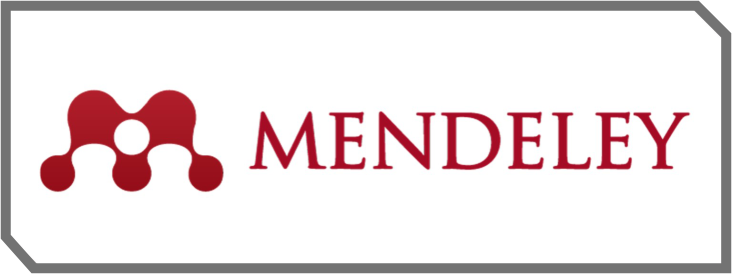Sistem Pendidikan di Korea Selatan
DOI:
https://doi.org/10.53958/ft.v4i4.378Keywords:
Brain Korea 21st Project, The Education Reform, Higher EducationAbstract
South Korea have many things interested and make we have to find it more, not only about the culture but also abaout the education. The development of education in South Korea can be implemented with eitherbecause of the educational reforms undertaken by the government annualy in order to answer the challenges of the growing period. A long history on the history of education in South Korea that interest the researcher to examine how big the impact of the renewal of education towards the progress of national education. On 1999, the government launched the Brain Korea 21st project as on of the government’s ambitious program to improve the competitve power of the nation of Korea. The main question was “How the implementation of Brain Korea 21st project and the impacts for South Korea in 1999 – 2005?”. To answer that problem, the researcher implead a history method and literature technique there are books and journals. Based the research and the conclusion was, first the Brain Korea 21st project which was launched by the goverment on 1999 is a project initiated during 7 years with various objective impact on the socio-cultural aspect was gender equally during this so the issue in South Korea as well the increasing suicides and the emergence of the social gap between professors at the local University. Second the impact of which was felt in the aspect of economy is pulling back the number of foreign investors after implemented the Brain Korea 21st project.
References
Bermeo, E. (2014). South Korea’s successful education system: lessons and policy implications for Peru. Korean Social Science Journal, 41(2), 135–151. https://doi.org/10.1007/s40483-014-0019-0
Hultberg, P., Calonge, D. S., & Kim, S. H. (2017). Education policy in South Korea: A contemporary model of human capital accumulation? Cogent Economics and Finance, 5(1). https://doi.org/10.1080/23322039.2017.1389804
KEDI. (2019). A Window into Korean Education (p. 25).
Kim-Renaud, Y.-K., Grinker, R. R., & Larsen, K. W. (2005). Korean Education. The Sigur Center Asia Papers, 3–59. https://www2.gwu.edu/~sigur/assets/docs/scap/SCAP24-KoreanEd.pdf
Lee, J. (2001). Education Policy in the Republic of Korea: Building Block or Stumbling Block? (p. 27). http://web.worldbank.org/archive/website01006/WEB/IMAGES/WBI37164.PDF
Lim, S. J. (2018). The Development Of Education In South Korea (Analysis on the Basis of Relationships Between Higher Education Development and Economic Growth). California State Polytechnic University, Pomona.
Mee-Ryang, J., & Woojin, L. (2018). Korean Education: Educational Thought, Systems and Conten (Issue 1).
Mentari, I. A., Yulifar, L., & Kurniawati, Y. (2018). Brain Korea 21St Project: Perkembangan Kemajuan Pendidikan Tinggi Dan Dampaknya Di Korea Selatan Tahun 1999- 2005. FACTUM: Jurnal Sejarah Dan Pendidikan Sejarah, 7(2), 175 188. https://doi.org/10.17509/factum.v7i2.15604
Ndaruhutse, S., Gibbs, E., & Fitzpatrick, R. (2020). What are countries doing that already use remote learning extensively? What can we learn from them? (Issue May, p. 37).
OECD. (2014). Lessons from PISA for Korea, Strong Performers and Successful Reformers in Education. In OECD Publishing. https://doi.org/http://dx.doi.org/10.1787/9789264190672-en
OECD. (2019). PISA 2018 Results Combined Executive Summaries Volume I, II & III. In Secretary-General of the OECD. https://doi.org/10.1017/CBO9781107415324.004
Park, H., Choi, J. Y., Yun, J. H., & Chae, J.-E. (2015). Skills for Work: The Development and Expansion of the Higher Education Sector in the Republic of Korea. August, 1–46.
Peuch, J. (2011). The educational system in South Korea : a case study. Social Regimes and Globalization Course Led by Pr. Telo; Paper Supervised by Anna Chung, 1 13. http://jpeuch.wordpress.com/2011/12/14/the-educational-system-in-south korea-a-case-study/
Yang, J. A., & Tan, C. (2019). Advancing Student-Centric Education in Korea: Issues and Challenges. Asia-Pacific Education Researcher, 28(6), 483–493. https://doi.org/10.1007/s40299-019-00449-1
Yoon, K. (2014). The Change and Structure of Korean Education Policy in History. Italian Journal of Sociology of Education, 6(2), 173–200. http://www.ijse.eu/wp- content/uploads/2014/06/2014_2_8.pdf
Banch TNT & Hai Linh Tran. (2015). Experiences In Higher Education Reform For Science, Technology & Economy Development In Korea And Application In Vietnam. Interrnational Journal of Social Sciences and Management (IJSSM): 2(4), hlm. 348-356
Gilton,E & Jun Lee. (2015). Brain Korea 21: A Development – Oriented National Policy in Korean Higher Education. Boston College: 45(1), hlm. 24-2
Gottschalk, L. (1986). Mengerti Sejarah. Jakarta: Yayasan Penerbit Universitas Indonesia.
Ismaun. (2005). Filsafat Sejarah: Sebuah Paparan Pengantar. Bandung Historia Utama Press
Jeong Soon, R (Ed). (2003). Korea Annual 2003. Yonhap News
Korea Broadcasting System (KBS). (1995). Sejarah Korea. Seoul: Jung Moon Printing.
Kristanto (Ed). (2008). Fact About Korea. Seoul : Kementerian Pendidikan Republik Korea
Kyung Mee, P. (2005). Assessing Korea‟s Education System in Positive Light.
Mugyeong, M & Kim Ki Seok. (2001). A Case of Korean Higher Education Reform: The Brain Korea 21 Project. Asia Pasific Education Review; 2(2), hlm. 96-105
Savada, A. & William (1992). South Korea: A Country Study. Washington DC: Department of The Army.
Sjamsudin, H. (2012). Metodologi Sejarah. Yogyakarta: Ombak.
Soekanto. (1993). Sosiologi Suatu Pengantar. Jakarta: PT Raja Grafindo Persada.
Sung Joo,P. (2004). „Wave of Higher Education Reform‟ Sweeps the World.
Warsito, T. (2005). Solusi Krisis Ala Korea Selatan. Diakses dari : https://ugm.ac.id/id/berita/1019-solusi.krisis.ala.korea.selatan
















